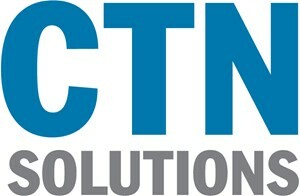Here are some fun and interesting cybersecurity facts:
- Cybercrime Economy: The global cybercrime economy is estimated to be worth trillions of dollars annually, making it one of the most profitable criminal enterprises.
- Long Passwords: The longest password ever recorded contained 82 characters. While it might not be necessary to go that far, longer and complex passwords are more secure.
- USB Stick Vulnerabilities: In a study conducted by a security firm, they found that people are more likely to pick up and plug in a random USB stick they find on the street, creating a potential entry point for malware.
- Social Engineering: Social engineering is a common hacking technique where attackers manipulate people into divulging sensitive information. Phishing emails are a prime example of this strategy.
- Password “123456”: Shockingly, the most commonly used password is still “123456.” Using weak passwords like this makes it easier for attackers to gain unauthorized access.
- The First Computer Virus: The first computer virus, named “Creeper,” was created in 1971 by Bob Thomas. It spread through ARPANET, displaying the message “I’m the creeper, catch me if you can!”
- Cybersecurity Day: November 30th is observed as International Computer Security Day, dedicated to raising awareness about computer security issues.
- Hackers’ Favorite Day: While not a fun fact, it’s interesting that hackers tend to be particularly active on weekends and holidays when security teams might be understaffed.
- Bug Bounty Programs: Many tech companies offer bug bounty programs, rewarding ethical hackers for finding and reporting security vulnerabilities in their software.
- Two-Factor Authentication (2FA): Adding 2FA to your accounts significantly increases security. It’s estimated that 2FA can prevent around 99.9% of unauthorized account access attempts.
- IoT Vulnerabilities: The rise of Internet of Things (IoT) devices has introduced new cybersecurity challenges. Devices like smart fridges and cameras can sometimes be exploited by attackers.
- Ransomware Payments: Ransomware attacks often demand payment in cryptocurrencies like Bitcoin because of the anonymity they offer.
- Famous Hacks: The 2014 Sony Pictures hack, allegedly conducted by North Korea, led to the leaking of sensitive emails and unreleased movies.
- Quantum Threat: While still in development, quantum computers have the potential to break many of today’s encryption methods, leading to a need for new, quantum-resistant algorithms.
- AI and Cybersecurity: Both cyber attackers and defenders are using artificial intelligence. AI can be used to identify vulnerabilities and automate attacks, but it’s also utilized for threat detection and prevention.
Remember, while these facts are fun and interesting, they also highlight the need for strong cybersecurity practices to protect our digital lives and information. Consider bringing in CTN for the best protection for your business!
